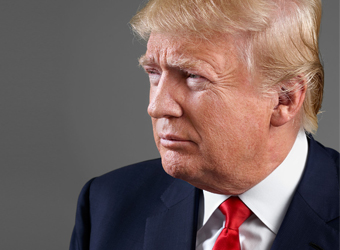U.S. Trump administration is preparing a broad move against China over trade, according to people with knowledge of its plans, amid growing worries in the United States over a Chinese government-led effort to make the country a global leader in microchips, electric cars and other crucial technologies of the future.
The move, which could come in the next several days, signals a shift by the administration away from its emphasis on greater cooperation between Washington and Beijing, in part because administration officials have become frustrated by China’s reluctance to confront North Korea over its nuclear and ballistic missile programs.
The two sides have also struggled in trade negotiations despite claiming modest progress earlier this year, while American companies have complained they face pressure to share trade secrets with Chinese partners.
The trade case will focus on alleged Chinese violations of American intellectual property, according to three people with a detailed knowledge of the administration’s plans. The people spoke on condition of anonymity because the deliberations are not yet public.
China’s policy to become a leading manufacturer by 2025 in the fields of driverless cars, medical devices, semiconductors, artificial intelligence, robotics and many other technologies has caught the attention of Trump administration officials. The policy, known as Made in China 2025, sets goals for China to be a global leader in ten fields of industry with the help of massive infusions of state money and the protection of those industries from American competitors.
At the same time, the Chinese government has demanded that American companies cut the licensing fees that they charge for key patents, and has insisted that companies set up joint ventures to do business in China.
Under the process that the Trump administration plans to set in motion, the office of the United States Trade Representative will start an investigation into China’s trade practice. Following an investigation, which could be completed in as little as a few months, the United States could impose steep tariffs on imports, rescind licenses or take other measures in response to other countries’ burdensome or unfair restrictions on American commerce. The process is known as a Section 301 investigation, citing a section of the 1974 Trade Act.
The Trump policy of cooperation began to founder after a crucial meeting in Washington on July 19 between top American and top Chinese officials, Trump administration officials and trade policy advisers said. That meeting, the so-called Comprehensive Economic Dialogue talks overseen by the Treasury and the Commerce Departments, had been aimed at producing a series of trade deals that could be portrayed as an “early harvest” in the three months following President Trump’s summit with President Xi Jinping of China last spring at Mar-a-Lago.
The two sides were unable to agree on any deals that went significantly beyond what China had previously promised the Obama administration. Both sides ended up abruptly canceling the news conferences they had previously scheduled to discuss what were supposed to have been their accomplishments.
Source: The New York Times
